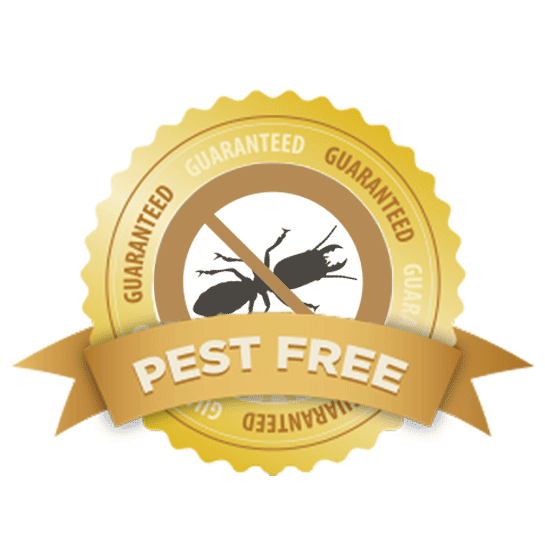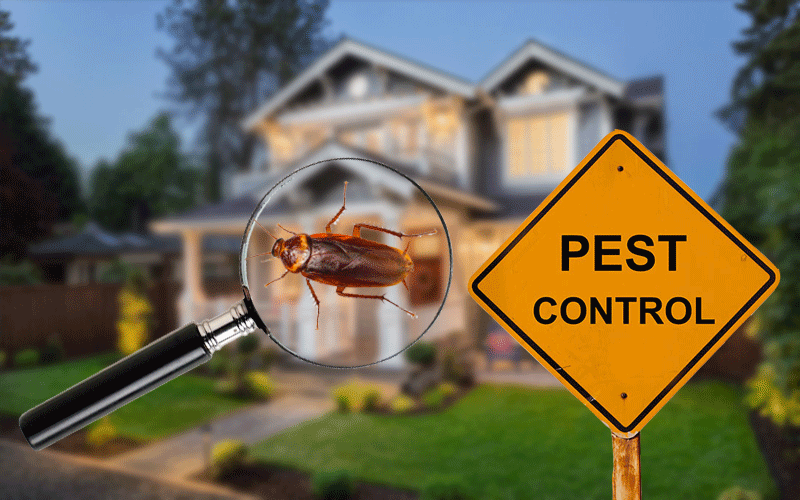A1 Charlotte Pest Control Companies - Your Local Pest Experts
A1 Charlotte Pest Control Companies - Your Local Pest Experts
Blog Article
Bed Insect Therapy Breakdown: Comparing Chemical Vs. Non-Chemical Solutions
In the world of bug control, particularly when managing the consistent problem of bed bugs, the option in between chemical and non-chemical therapy remedies can be a crucial one. Both techniques provide distinctive benefits and downsides, influencing elements such as efficiency, security factors to consider, and overall expense. By checking out the nuanced details of each approach, a more clear understanding of which course to go after in addressing a bed bug invasion can be acquired.
Effectiveness of Chemical Therapies
Chemical treatments for bed insect invasions have been widely recognized for their potent and quick effectiveness in getting rid of these parasites. When thinking about the efficiency of chemical therapies, it is important to comprehend that they can supply a fast and complete remedy to a bed bug problem. Expert pest control experts frequently rely on insecticides to target bed pests at numerous stages of their life cycle, consisting of eggs, grownups, and fairies. These chemicals normally work by interrupting the bed bugs' nerves, resulting in paralysis and eventual fatality.
Moreover, chemical therapies have the benefit of supplying residual effects, implying that they can remain to get rid of bed bugs also after the preliminary application. This residual action is specifically beneficial in combating any kind of potential re-infestations. In addition, the rapid activity of chemical therapies can bring relief to individuals encountering severe bed bug problems, enabling them to reclaim control of their living areas promptly.
Security Worry About Chemical Solutions
When using chemical solutions for bed insect therapy is making sure the safety and security of passengers and the environment,One essential element that needs cautious consideration. While chemical treatments can be efficient in getting rid of bed pests, they may position threats otherwise managed properly. Among the key safety interest in chemical services is the potential injury they can trigger to human health. Exposure to particular chemicals utilized in bed bug therapies can lead to respiratory issues, skin inflammation, or other unfavorable responses, particularly in individuals with pre-existing conditions or sensitivities. In addition, incorrect application or dosage of chemical pesticides can result in harmful residues sticking around in the cured area, posing long-lasting health and wellness risks to owners.
Furthermore, the ecological effect of chemical solutions is an additional significant consideration. Some pesticides used in bed insect therapies might be harmful to beneficial bugs, wild animals, and environments if they seep right into the soil or water systems. It is crucial to utilize chemical therapies sensibly, adhering to safety guidelines, and thinking about much less toxic choices to reduce these threats and ensure the efficient and safe management of bed bug infestations.
Benefits of Non-Chemical Techniques
Taking into consideration the possible security problems and environmental impact linked with chemical options for bed pest treatment, checking out non-chemical methods offers an appealing choice with numerous distinct advantages. Non-chemical treatments are eco friendly, as helpful resources they do not contribute to air or water contamination, making them a sustainable selection for insect control.
Furthermore, non-chemical options can be efficient in targeting bed bugs, consisting of hard-to-reach areas where chemical therapies might not pass through - A1 charlotte bed bug exterminator. Techniques such as heat therapy, vacuuming, heavy steam cleaning, and mattress encasements supply comprehensive eradication without the usage of dangerous chemicals.
Limitations of Non-Chemical Treatments

Additionally, non-chemical treatments usually need multiple applications to attain successful eradication. This can be taxing and might not constantly guarantee total elimination of all bed bugs and their eggs, specifically in hard-to-reach or concealed places.
Furthermore, the success of non-chemical therapies greatly counts on proper execution and thoroughness, which can be testing for people without expert experience. Inadequate application of non-chemical techniques might result in insufficient eradication, resulting in persistent problems and the need for added therapies.
Consequently, while non-chemical therapies have their benefits, it is important to acknowledge these restrictions and consider them when determining the most effective strategy for handling bed insect invasions.
Price Comparison: Chemical Vs. Non-Chemical Options
Offered the limitations connected with non-chemical therapies, a crucial aspect to review in the context of bed bug monitoring is the cost comparison visit this page in between chemical and non-chemical options. In contrast, non-chemical treatments like warmth treatment or steam can be extra costly, with expenses ranging from $1,000 to $6,000 for an entire home. While the preliminary price of chemical treatments may appear reduced, multiple treatments may be needed to completely remove the infestation, potentially here are the findings increasing the overall price.
Final Thought

Taking into consideration the potential safety worries and environmental effect linked with chemical solutions for bed insect therapy, discovering non-chemical methods provides an encouraging choice with a number of distinctive benefits.Provided the constraints linked with non-chemical therapies, a necessary aspect to assess in the context of bed pest administration is the price contrast in between chemical and non-chemical alternatives. In contrast, non-chemical therapies like warm therapy or vapor can be much more costly, with expenses ranging from $1,000 to $6,000 for an entire home. While the preliminary cost of chemical treatments might appear reduced, numerous treatments might be needed to completely eradicate the problem, potentially boosting the overall price.In conclusion, when contrasting chemical and non-chemical bed insect therapy alternatives, it is important to think about effectiveness, safety, advantages, constraints, and price.
Report this page